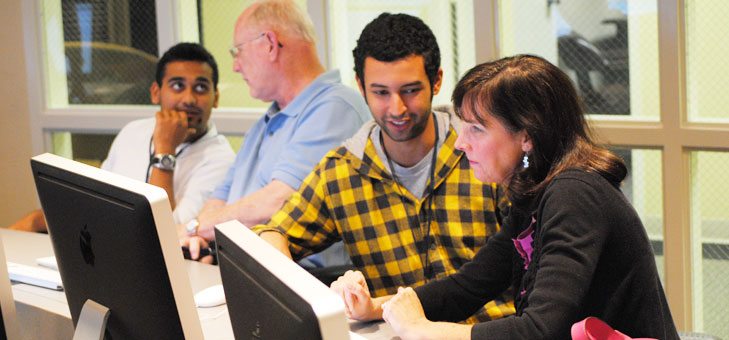How late is too late to make a career change?
When you grow up with a mother who still holds the student status, the concept of mature students becomes normality. Whether it is to raise a family, travel, earn some money first or follow more personal goals, there are many reasons for the delay in embarking on the road to a degree. In my mother’s case, it was moving to the UK at the age of 19 and marrying my father. As English was added to her list of languages and London became her new home, her initial plan to study Medicine was replaced by a desire to pursue a degree in Design and Media Management. She then went on to study Teaching, and has also recently acquired an MA in Experimental and Documentary Filmmaking.
When I asked if it was weird to return to education after almost 17 years, she told me that, on the contrary, she “felt young again”. Bringing together her studies, she now leads a job as a Cover Supervisor alongside her government-funded filming projects, which has shown me that it is never too late for learning.
My mum is just one example among many. Data published by UCAS showed that 214,505 university applicants in 2015 were aged twenty or over, almost half the number of total applicants. Despite this, it seems that mature students continue to face discrimination in higher education. The same report showed that the offer rate gap between applications from younger and older applicants is around 40 percentage points, and has been so for the last 3 cycles of university applications.
Mature students continue to face discrimination in higher education
A report published by the Office for Fair Access showed that the number of mature students has halved since 2006, while the number of part-time learners – a large percentage of which are mature students – has dropped by 60%. The Open University’s vice-chancellor, Peter Horrocks, criticised current widening participation efforts, claiming they fail to take into account the vital role part-time and lifelong study has to play in driving social mobility.
Nonetheless, applications among older students remain common and there have been improvements in the last few years. In 2014, 100,700 mature students were accepted into universities, representing a 6% increase from the previous year. There was also a 7% rise in acceptances from people aged 25 and over, showing that returning to university after a gap, no matter how large, is not unusual.
For many, the right time to get the most out of university is later in life
University is a big financial, academic and social commitment and not all those who wish to attend can be expected to be ready for it at the same time. As Mary Curnock Cook, UCAS’ Chief Executive stated, the rise in mature students at universities “is a welcome reminder that for many, the right time to get the most out of going to university is later in life”.
While there may always be some sort of stigma attached to the notion of being the oldest in the class, one must remember that to learn is first and foremost to have an open mind. The consistent presence of mature students in our lectures and seminars sustains the concept that education is universal, and a foundation that should not be restricted, least of all by age.

Comments